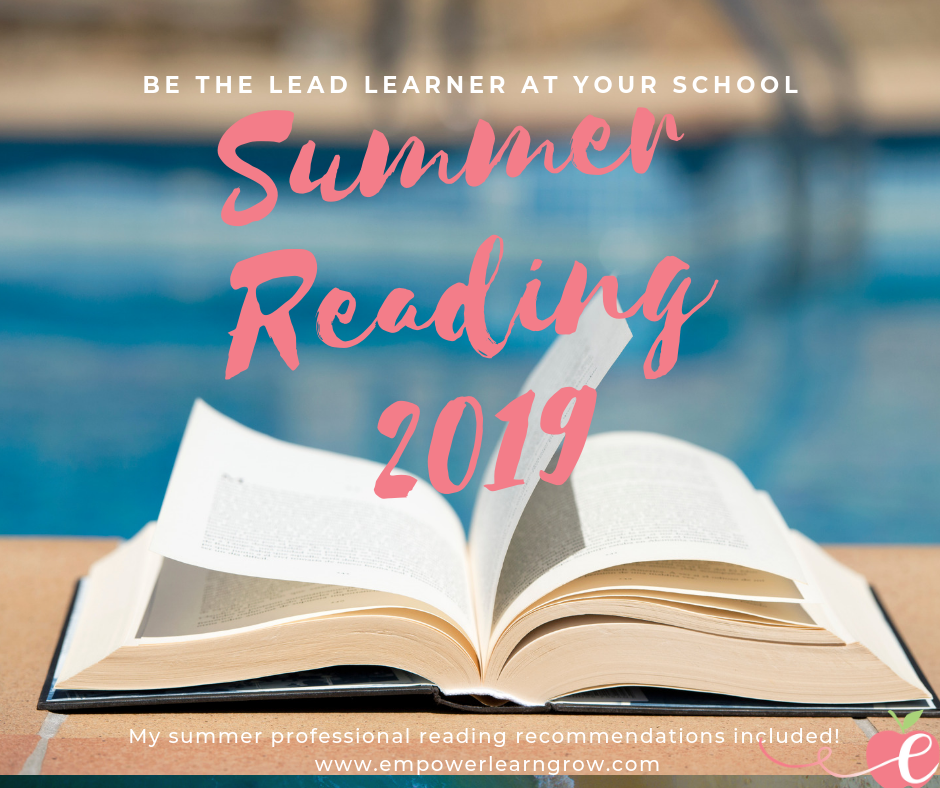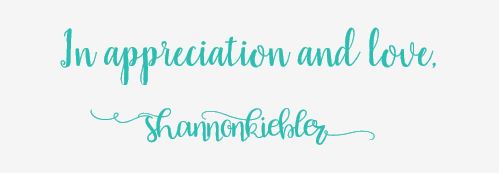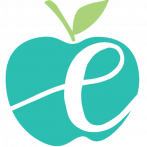
17 Jun Summer Recommendations
We are funny creatures, us teachers. If you were to converse with any educator in the last few weeks of school, you would instantly pick up on the extreme exhaustion and overwhelm. And yet, talk with the same teachers, not even a week after school is out and SO MANY are already searching Pinterest, teachers pay teachers, joining online book studies, twitter chat rooms, taking online courses, etc.
We are a unique breed. We need rest, relaxation and time away from our schools, but we also our teachers at our very core and use much of our downtime to dream, invent and create for the next school year.


I am NOT suggesting you give up any of your relaxation time. In fact, I challenge you to take a minimum of one week where you do NOTHING. Not Pinterest browsing— NOTHING that has to do with teaching. Of course, more is better, but I do believe firmly in self-care.
I recently went on vacation for ten days. I read 5 books. All 5 were for mere pleasure, but it took some heavy persuasion from my husband to leave behind the teacher books I was hoping to add to my stack. I’m really glad I took the time away.
However, now I’m back from vacation and my mind is spinning just like yours. So, if you are ready to begin some summer reading and WANT to do some summer reading, I wanted to recommend a few of my favorite mathematics teaching books. Inc .com recently put out an article and many other notable publications did as well (Business Insider, Fortune 500, etc.) suggest the average CEO reads one book per week! Do our kid’s chapter books count? No, we aren’t CEOs by the traditional definition, but I do believe we are CEO’s of our classrooms, or of our schools. The point is the leader should be the LEAD LEARNER. When we take the role of the learner, we are better teachers and that is just a fact. I’m not suggesting you get in a book a week, but I am suggesting you invest in yourself and do some reading this summer. With the help of AUDIBLE (I LOVE audiobooks), I met my goal this year of a growth book a month– meaning, I read (or listened) to one book a month (many months more than 1!) that improved me as a teacher, a leader, or a person.
- 5 Practices for Orchestrating Mathematical Discussions – Margaret Smith and Mary Kay Stein. I think this book summarizes SO. WELL. how to plan for and execute great classroom discussions. Anticipating, monitoring, sequencing, etc. are transformative ways of thinking about lesson planning. I resonate so much with this philosophy of teaching that I’ve used these five practices in my new online course to launch the end of July.
- Smarter than we Think – Cathy Seeley. I found this to be a very easy, smooth read. Cathy is entertaining and I think she might be my soul sister in the math world. With every chapter I was hooting and hollering and yelling, “AMEN.” If you want to be affirmed in your beliefs around timed tests, inquiry-based mathematics, etc. then you will enjoy this book.
- Making Sense of Mathematics for Teaching the Small Group – Juli Dixon, Lisa Brooks, and Melissa Carli. This short book is filled with amazing resources, PDF’s, and links to videos online to support the reading. I LOVE videos that accompany books. It is one thing to read it and another to read and watch. I really do love small group mathematics, but I feel we have done them a disservice. We use them as ways to ‘ability’ group in our math classrooms and I believe this drastically impacts math mindsets, scores, and life long love for mathematics. I see small groups turn into ‘centers’ which are often unproductive and unmonitored. There is a time and a place for small groups and I believe this book does such a nice job of flipping the script and ensuring the same quality instruction that happens in the whole group continues in small group instruction.
By the way, I teach a professional learning course on this very topic and use these books as a significant resource. Check out my services page if you want to have training for you or your team/school. Interested in doing it online? Comment below! I’d love to turn it into an online course with enough interest.
- Talk Moves – Chapin, O’Connor, and Anderson. If you sat in any of my professional development sessions, you’ve heard me recommend this book. I have read it SO MANY TIMES. It was renamed in this newest edition and was formerly called Classroom Discussions in Math. What I love the most is you can use it as a reference book– reading chapters out of order. It includes so many real classroom vignettes and the strategies and ‘moves’ for increasing the talk in your classroom are practical and transformative. AND IT COMES WITH LOTS OF VIDEOS. The DVD that accompanies it is GREAT. I also have the facilitator’s version of the book which has EVEN more videos and PDFS to help lead a book study or PD, so all my coaching and principal friends may also want that version. Disclaimer: this book is PRICEY, but it is not a one and done book. You’ll get your money out of it if you continue to use it as a resource.
- High-Performance Habits – Brendon Burchard. To say a book changed my life seems a little much, but I do have to say this book made a HUGE impact on my life and spoiler alert– it’s not just about getting up earlier– because that isn’t happening. His philosophy is so much more about how to think about things to become more productive and higher performing. I believe so much of what a teacher’s or principal’s day looks like is extremely inefficient. We have too much to do with so little time that we really need to be more intentional with how we handle all of our tasks and to-dos. Along with much of the reading on the growth mindset that I did this year, I found his book to be a good companion and was very inspiring. I listened to this book on Audible, and then found I couldn’t process the amazing information after just one reading, so I bought the book and am now reading it a second time with annotations.
I have many more I would add to this list. But, for now, these are the ones I’ve been the most passionate about that I also believe are ‘easier’ reads. I’d also highly recommend books like Teaching Student-Centered Mathematics, Mathematical Mindsets, NCTM’s Principles to Action, and Visible Learning, but those read a bit more like textbooks and take more brain power and focus. They are UNBELIEVABLY important books in our field, so if you are up for some heavier reading that includes more research and science backing, grab those too.
As you make your way through any summer reading, take time to reflect, journal, and create an action plan for the new learning. Use this free reflection sheet to keep track of the new idea and how you plan to execute it in the new school year.
What is on your summer list? Share below! HAPPY READING!
Enjoy this post? Give it a like and share it with your friends.
Grab your Reading Reflection Sheet Here



Melissa Smith
Posted at 23:54h, 20 JuneThank you for the recommendations! I can’t wait to get my hands on one, or two of them!
skiebler
Posted at 18:47h, 28 JuneLet me know which you read and what you think!